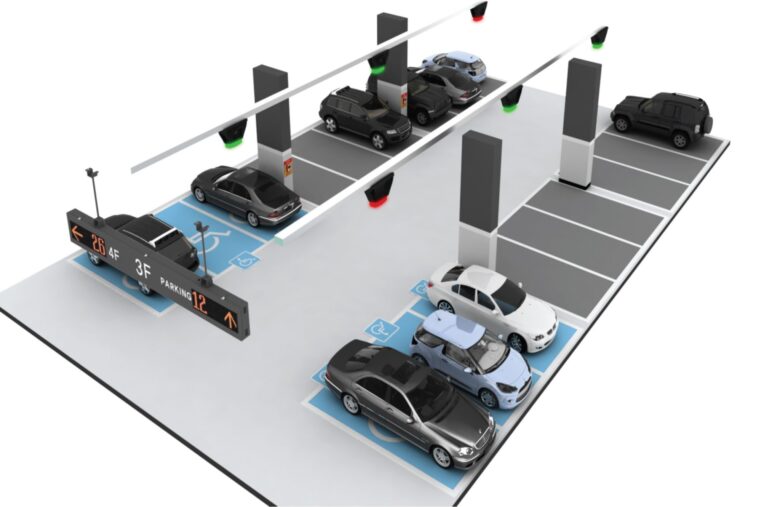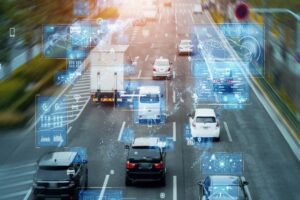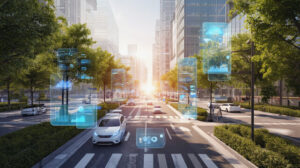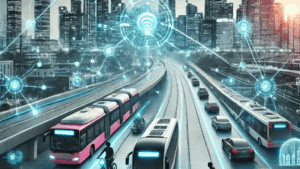In crowded urban areas, finding a parking space can sometimes seem like an impossible task. City officials are all too familiar with the constant flow of traffic, increasing congestion, and wasted fuel. As cities grow, the pressure on existing infrastructure increases, making traditional parking methods outdated and pointless. Searching for a parking space exacerbates congestion and pollution. Smart parking is one potential solution offered by technology. This new form of mobility will transform the way we navigate cities and improve life for everyone.
The Problem with Standard Parking
Traditional parking systems place enormous pressure on cities. Drivers often rely on luck to find a parking space, which wastes time and increases vehicle emissions. Researchers have found that in congested city centers, up to 30% of traffic is caused by people searching for parking. This not only congests streets but also increases air and noise pollution, making city life less comfortable. Urban planners and city governments have long struggled with developing parking infrastructure. Manually checking and enforcing parking regulations is time-consuming and error-prone. Because this outdated model is dysfunctional, it has a knock-on effect on the local economy by making it harder for potential customers to find a parking space.
How Smart Parking Works
Smart parking solutions combine technologies like sensors, cameras, and data analytics from the Internet of Things (IoT) to make parking quick and easy. Sensors in parking spaces or cameras in parking lots can determine if a space is full. This data is then sent in real time to a central cloud platform. Drivers can access this information via a mobile app, which directs them directly to an available space, eliminating the need for aimless searching. The solution also makes it easier for parking operators to accept electronic payments, take reservations, and even consult statistics to maximize space utilization and determine reasonable prices.
Benefits of Smart Parking
Smart parking systems offer numerous benefits for drivers, city officials, and the environment. The most obvious benefit for drivers is that they reduce the time and stress of searching for a parking space. This convenience means saving fuel and enjoying a more pleasant time in the city. Smart parking helps cities achieve their sustainability goals by reducing traffic congestion and carbon emissions. The data collected by parking operators provides them with valuable insights to improve their operations and implement dynamic pricing strategies. This optimization can generate additional revenue and make parking infrastructure function more smoothly overall.
Smart Parking Application Examples
Smart parking technology is already helping cities worldwide. The SFpark project in San Francisco uses sensors to display real-time parking availability and sets prices based on demand. This has reduced the time it takes to find a parking space by 43%. Barcelona has also established a sensor network and a dedicated app to help cars find available parking spaces as part of its ambitious plan to become a top-tier smart city. These real-world examples demonstrate that smart parking is more than just a futuristic idea; it’s a practical solution that can improve urban efficiency and make travel easier.
Challenges and Considerations
Smart parking offers many benefits, but its widespread adoption also presents some challenges. Cities and private companies may need to initially invest significantly in technology, such as sensors and network infrastructure. Another key issue requiring robust cybersecurity measures is ensuring the security and privacy of captured data. Furthermore, to be effective, smart parking systems require widespread vehicle use. This means the app must be user-friendly and communication must be clear. To address these challenges, we need a well-thought-out plan and collaboration with businesses and governments to make cities smarter and better connected.
Paving the Way for Smarter Cities
Smart parking solutions are a major step forward in our goal of making cities more efficient, sustainable, and enjoyable. By using technology to address one of the most widespread urban problems, we can reduce congestion, mitigate pollution, and improve the quality of life for residents and visitors. While some challenges remain, the significant benefits for drivers, businesses, and city governments make it a strong investment opportunity. As technology continues to develop, smart parking will undoubtedly become a crucial component of future urban transportation.
FAQs
1. What is a smart parking system?
A smart parking system uses IoT sensors, cameras, and mobile apps to provide real-time information about available parking spaces. It helps drivers quickly locate a parking space and supports digital payment and reservations.
2. What are the environmental benefits of smart parking?
Smart parking can guide drivers directly to available parking spaces, reducing the time spent searching for a parking space. Less travel time means less fuel consumption and fewer harmful vehicle emissions, which contributes to better air quality in the city.
3. Is my data secure in the smart parking app?
Companies offering smart parking systems must consider data protection. High-quality systems use encryption and other security features to protect users’ personal information and payment details. Always read the privacy policy of the program you are using.
4. Are smart parking systems suitable for all types of parking lots?
Yes, smart parking technology can be applied to many different locations, such as on-street parking, parking garages, and public parking lots. The technology used can vary depending on the layout and needs of the facility.
5. How much does it cost to install a smart parking system?
The implementation costs of each project can vary depending on its size and the technology used. While the initial cost can be significant, the long-term benefits, such as increased profits, lower operating expenses, and greater efficiency, often make it worthwhile.




